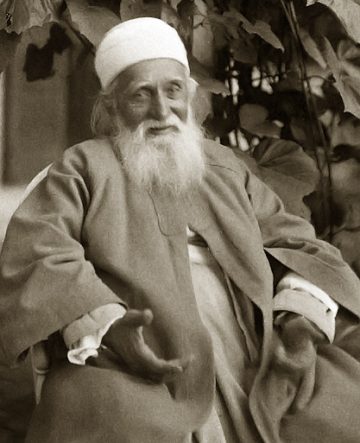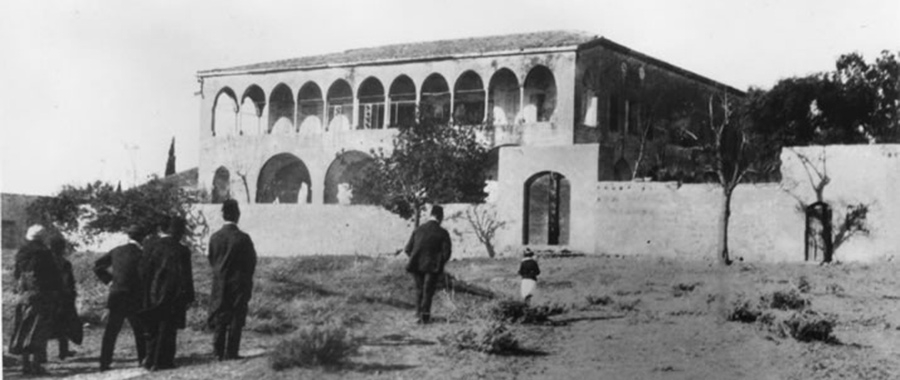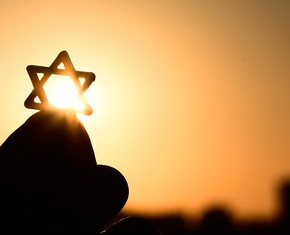The views expressed in our content reflect individual perspectives and do not represent the authoritative views of the Baha'i Faith.
I will vouch for the fact that the spirit of the Covenant of Baha’u’llah penetrated into my heart, just as this verse in the Baha’i writings promised it would:
O ye beloved of God, know that steadfastness and firmness in this new and wonderful Covenant is indeed the spirit that quickeneth the hearts which are overflowing with the love of the Glorious Lord; verily, it is the power which penetrates into the hearts of the people of the world! – Abdu’l-Baha, Baha’i World Faith, p. 357.
That this person, Abdu’l-Baha, whom Baha’u’llah referred to as The Master and The Mystery of God, was the appointed interpreter of his Father’s revelation seemed absolutely breathtaking to me. The religious world had been torn for millennia by schism; here was an antidote to that strife. No less awe-inspiring was the character of the person. I think I can make that clear with an observation and an historical note.
The observation: This humble person into whose hands the prophet of God put the reins of his Faith did not call himself The Master. He called himself Abdu’l-Baha—the Servant of Baha. He existed, he said, to serve and help others:
My Name is Abdu’l-Baha. My Reality is Abdu’l-Baha: and Service to all the human race is my perpetual Religion …. – from a letter sent to the Baha’is in New York, January 1st, 1907.

Abdu’l-Baha in New Hampshire (1912) (National Baha’i Archives, US)
The historical note: One of Abdu’l-Baha’s brothers and his immediate family refused to accept Baha’u’llah’s conferring the station of Center of the Covenant on Abdu’l-Baha. During the time that this group of covenant breakers held Bahji—the home in which Baha’u’llah lived at the end of this life—Abdu’l-Baha would regularly lead a group of believers around the walls of the garden, praying for the souls of those inside. Those people would pelt Abdu’l-Baha and his fellow Baha’is with refuse, yet he continued to pray on their behalf.
This man, this Center of the Covenant, was also given to humankind, Baha’u’llah wrote, as a perfect exemplar of what it means to be a Baha’i. To put this into perspective, while living in Akka, Palestine, Abdu’l-Baha paid daily visits to a Muslim man who had a disease so loathsome, his own family had abandoned him. He cursed Abdu’l-Baha every day for twenty-four years and spat at him even as Abdu’l-Baha was tending to his needs. In that twenty-fourth year, this man finally realized that Abdu’l-Baha was his friend, not his enemy. Few of us, as our species pokes its reluctant nose into adulthood, rise to anything like that. But, we are aware of the goal and understand that we must rise to it for the sake of our species.
Because of the Covenant and its brilliant Center, Baha’is have the guidance to move toward that goal. The Covenant, if we are faithful to it, keeps us from wandering off into the world, relying only on our singular, selfish viewpoint as a framework for our existence. Abdu’l-Baha reminds us:
Were it not for the protecting power of the Covenant to guard the impregnable fort of the Cause of God, there would arise among the Baha’is, in one day, a thousand different sects as was the case in former ages. But in this Blessed Dispensation, for the sake of the permanency of the Cause of God and the avoidance of dissension amongst the people of God, the Blessed Beauty … has through the Supreme Pen written the Covenant and the Testament; He appointed a Center, the Exponent of the Book and the annuller of disputes. … The express purpose of this last Will and Testament is to set aside disputes from the world. – Abdu’l-Baha, Baha’i World Faith, p. 359.
This is a pretty big idea—that a diverse group of people from all over the globe look to one point as the guiding center of their faith because the prophet, himself, enjoined it. It is also unique in history. But the purpose of the Covenant of Baha’u’llah goes far beyond merely unifying the members of a religion. Abdu’l-Baha said of it: “…that the pivot of the oneness of mankind is nothing else but the power of the Covenant.” – quoted by Shoghi Effendi in The World Order of Baha’u’llah, p. 239.
Abdu’l-Baha’s words about the Covenant would hardly make sense if it did not outlive him. Like his Father before him, Abdu’l-Baha, in his own Will and Testament, appointed a successor—his grandson, Shoghi Effendi, as the Guardian of the Faith. This succession invested him with a set of priorities and prerogatives consistent with the needs of the nascent Baha’i community, and made him the authorized interpreter of the Baha’i teachings. To Shoghi Effendi, Abdu’l-Baha gave the Herculean task of laying the foundations for the administrative order that Baha’u’llah had designed.
Next we’ll take a look at how this unique Baha’i covenant brought about the genesis of the Baha’i Administrative Order.
















Comments
Sign in or create an account
Continue with Googleor